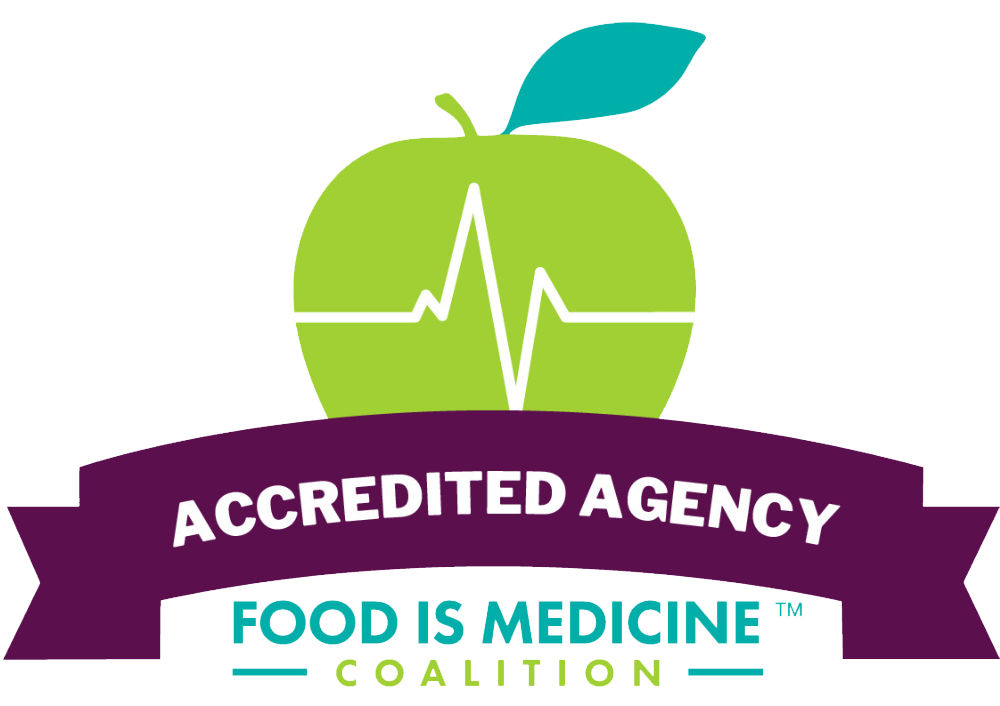By Valerie Machinist, MS, RDN, LDN, Director of Nutrition and Client Services
Improving the health of pregnant individuals and of children is a public health imperative. Both populations are facing significant health challenges, with rising rates of pregnancy-related deaths and complications and increasing incidence of childhood obesity, especially among people of color. Community Servings is responding by creating a new medically tailored meal program specifically designed for pregnant individuals and refining our program for children to better meet their dietary needs.
Nourishing meals to support at-risk pregnancies
Complex systemic issues lie at the heart of the health problems affecting many pregnant individuals in the United States, where it is estimated that 80 percent of maternal mortality is preventable. While access to nourishing food during pregnancy is just one part of the answer to improving pregnancy-related health, it is an important component. A healthy diet based on nutrient-rich whole foods contributes to reduced risk of gestational diabetes and pre-term birth. A poor diet is associated with unfavorable outcomes that can lead to increased risks of developing childhood and adult chronic diseases.
Our new Pregnancy Health Program uses nutritionally customized meals to help improve the health of pregnant individuals at a time of concerning pregnancy-related health trends. Severe maternal morbidity, serious complications of labor and delivery that do not result in death, nearly doubled in Massachusetts from 2011 to 2020, with people of color experiencing the highest rates. The nationwide pregnancy-related mortality rate is two to three times as high as many other high-income countries. And the maternal mortality rate for non-Hispanic Black women in the United States was about three times the rate for non-Hispanic White women in 2020.
At-risk pregnant individuals, who often have a diagnosis of gestational diabetes or preeclampsia, are referred to Community Servings through their doctors or health plans. Our new pregnancy program offers home delivery of 15 meals a week, including breakfast, rather than the 10 meals per week for most of our clients. Our registered dietitian nutritionists, in conjunction with our culinary team, have created an array of new protein-rich breakfast items such as an egg and turkey bacon sandwich and a vegetable frittata.
Depending on the type of referral, enrollment in the Pregnancy Health Program can extend into the postpartum period, which is important since we know that pregnancy-related health issues can continue to affect individuals even after they have given birth. Throughout the service period, we track basic health markers of the program enrollees, about 65 percent of whom are people of color, including nutrition quality, iron and blood glucose levels, delivery date, birth weight, and postpartum weight—information that can help us continue to improve the program. We are currently providing nutritious meals and access to nutrition counseling to about 35 individuals whose primary criteria is pregnancy.
Community Servings has received funding to develop the Pregnancy Health Program, including a two-year Maternal Health Equity Grant from the Massachusetts Attorney General’s office as part of a program aimed to reduce maternal health disparities by increasing access to culturally competent maternal health support services. We will work with a client in their first language through one of our bilingual registered dietitian nutritionists or an interpreter service. Of the 11 organizations awarded grants, Community Servings is the only one that focuses on food.
Meeting the nutrition needs of children
The increased demand from our healthcare partners for meals tailored to pregnant individuals and children dates to early 2020, when MassHealth’s Flexible Services Program began providing nutrition and housing supports for eligible members of Accountable Care Organizations. Since then, we have had a growing number of requests from our healthcare partners to cover individuals with high-risk pregnancies and children. As of the end of August, 809,762 children were enrolled in MassHealth, accounting for 34 percent of MassHealth enrollees. We previously provided meals for both populations, but neither pregnancy nor pediatrics was the main referral criteria. Our children’s wellness meal originally was intended to support dependents of a primary caregiver receiving meals due to illness. With more referrals for children as primary clients, we decided to take a closer look at the children’s program.
Healthcare providers and health plans are referring children to Community Servings primarily for overweight and obesity, as well as other conditions including prediabetes and hypertension. Over the last four decades, the rate of childhood obesity in the United States has more than tripled, from 5 percent in 1978 to 18.5 percent in 2016, with children of color disproportionately represented.
The Pediatric Health Program, which now serves 240 children, includes two meals a day, breakfast and dinner, plus snacks (Massachusetts children have access to free lunches at their public schools). We have improved the program by including higher-protein breakfasts and snacks. In addition to disease prevention, healthy eating can help children thrive in a variety of ways. Healthy food in the early years of a child’s life is associated with improved cognitive development.
To help hone the nutritional benefit of the Pediatric Health Program even more, we are working with Dr. Emma Steinberg, a pediatrician affiliated with Massachusetts General Hospital and Newton-Wellesley Hospital who is also a trained chef. For example, we are exploring ways to increase iron in our children’s meals since iron may reduce the risk of lead poisoning, which still affects many children.
The health issues facing our pregnant and pediatric clients are often complex and will require a multi-pronged system-wide effort to address fully. One critical part of that system is food, and access to nutritious meals is an important step toward providing these communities with better opportunities to lead healthier lives.


